Search
Search Results
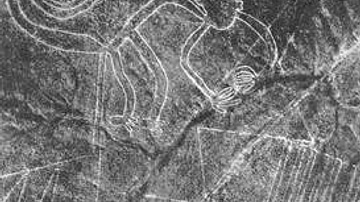
Image
Nazca Line Monkey
Aerial photograph taken in 1953 CE by Maria Reiche (1903 - 1998 CE). Maria Reiche was a German-born Peruvian mathematician and archaeologist who is known for her research on the Nazca Lines in Peru. The photo shows a geoglyph of a monkey...
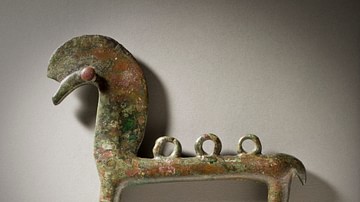
Definition
Villanovan Culture
The Villanovan culture flourished during the Iron Age in central Italy from c. 1000 to c. 750 BCE. It was a precursor of the Etruscan civilization, although the two populations are actually the same and the term Villanovan should not imply...
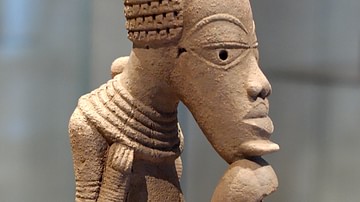
Definition
Nok Culture
The Nok culture, named after the settlement of the same name, flourished in southern West Africa (modern Nigeria) during the Iron Age from the 5th century BCE to the 2nd century CE. Famous for the distinctive terracotta sculptures of human...
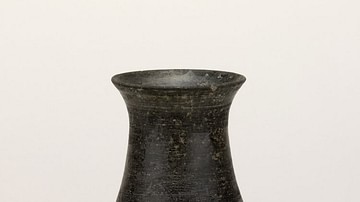
Definition
Longshan Culture
The Longshan culture (aka Lung-shan) flourished in parts of late Neolithic northeast China during the third millennium BCE and was an important link in the development of Chinese civilisation from the independent neolithic communities to...
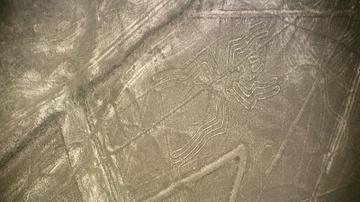
Image
Nazca Line Spider
A geoglyph showing the Nazca Line Spider. The designs and lines created on the desert floor of southern Peru are known collectively as the 'Nazca Lines' and were made over several centuries between 200 BCE and 500 CE. Their exact purpose...
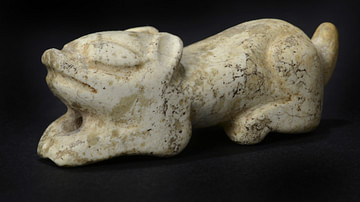
Article
Liangzhu Culture Jade
Jade artifacts and icons are almost synonymous with the Chinese culture going back thousands of years. Jade (nephrite) was first worked into recognizable objects c. 6000 BCE during the period of the Houli Culture (c. 6500 - c. 5500 BCE...
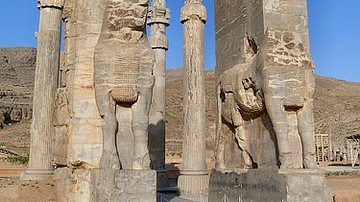
Definition
Ancient Persian Culture
Ancient Persian culture flourished between the reign of Cyrus II (The Great, r. c. 550-530 BCE), founder of the Achaemenid Persian Empire, and the fall of the Sassanian Empire in 651 CE. Even so, the foundations of Persian culture were already...
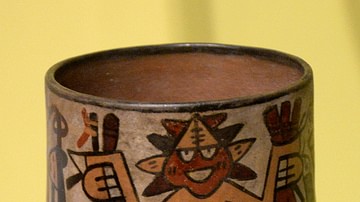
Image
Nazca Vase with Dancing Male
Human representation is a dominant and varied theme in later Nazca pottery. Men and women in stiff poses are shown individually and in groups. These tall sculpted vases offer interesting detail relating to ornate Nazca textiles and clthing...
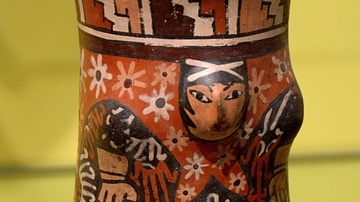
Image
Nazca Vase wtih Cross-legged Male
Human representation is a dominant and varied theme in later Nazca pottery. Men and women in stiff poses are shown individually and in groups. These tall sculpted vases offer interesting detail relating to ornate Nazca textile and types of...
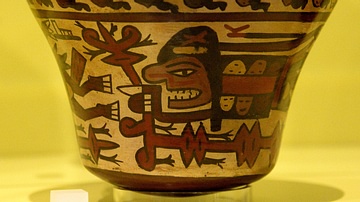
Image
Nazca Vase with Warrior & Trophy Heads
The vase is bell-shaped and depicts hunter-warrior figures with trophy heads. This is a typical "late" Nazca vessel with a proliferous design. The subject is depicted in profile and there is a use of complex and repeated motifs. This artistic...